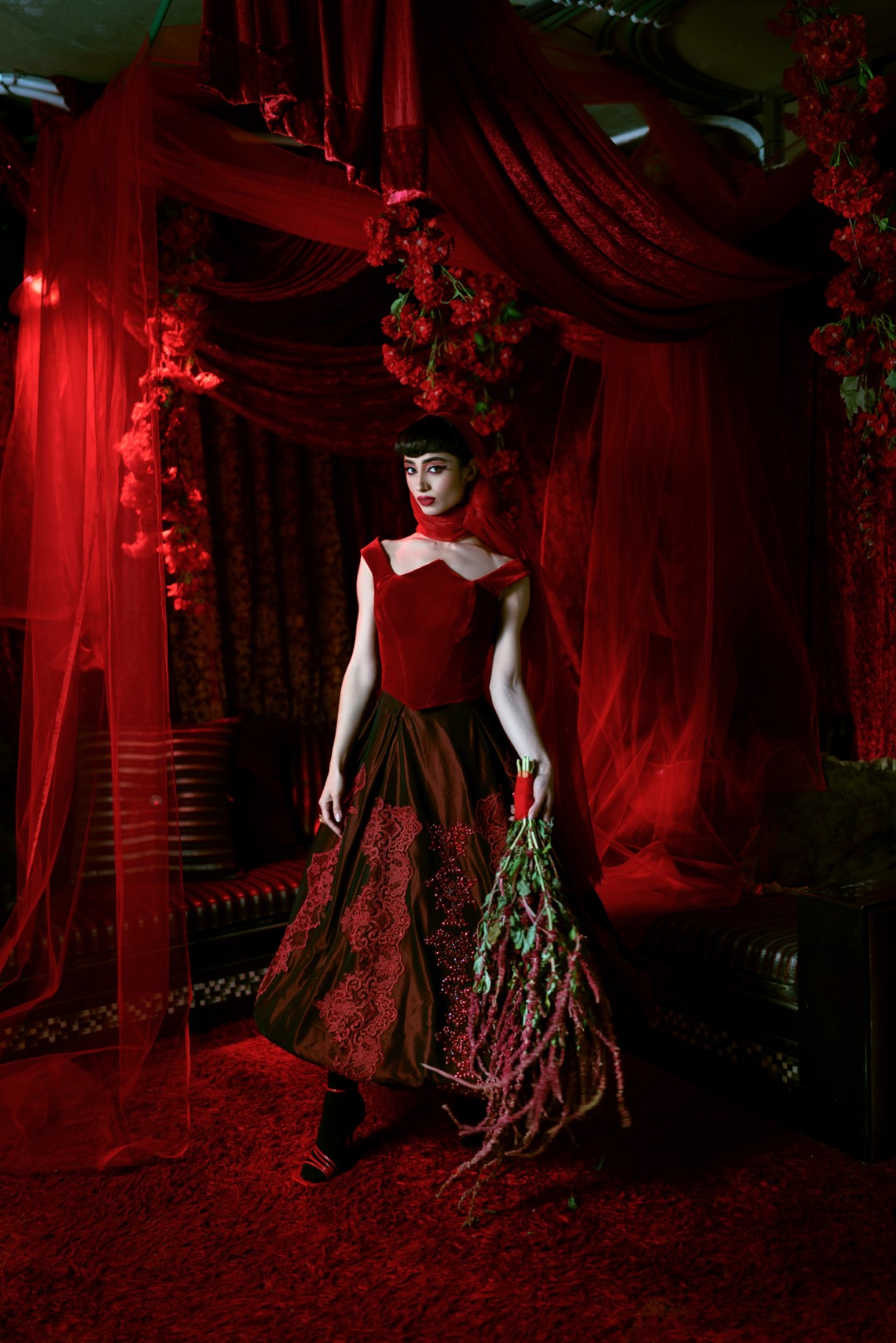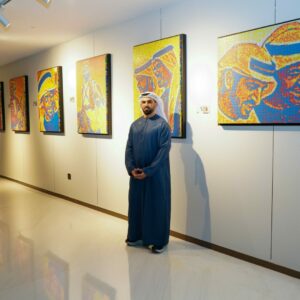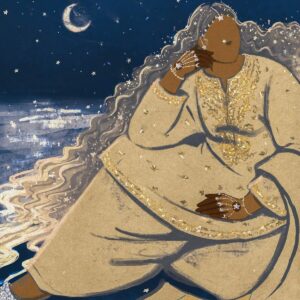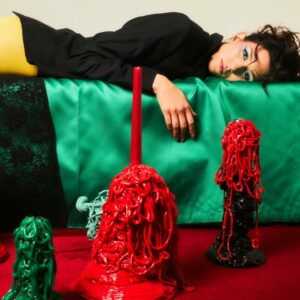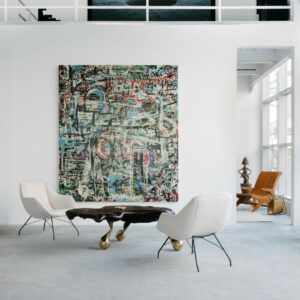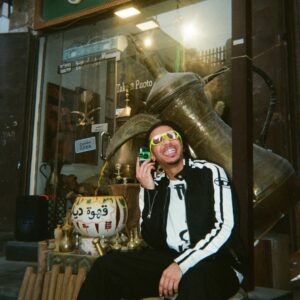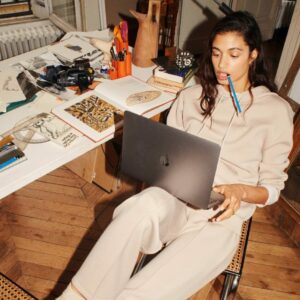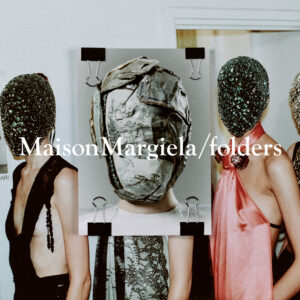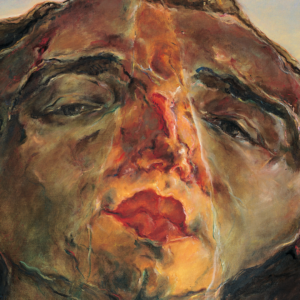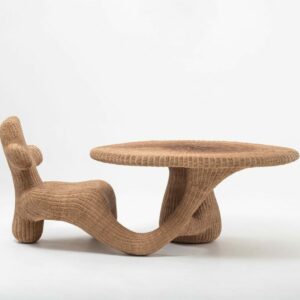Sharon Rose (Instagram) is a Palestinian multidisciplinary expressionist artist exploring humanness in an increasingly automated world. Blending performance, fashion, installation, sound, poetry, and historical inquiry, she creates immersive experiences that challenge societal norms and spark radical thought. Her work dismantles mental and material barriers, fostering wonder and play while reshaping perceptions of the tangible world.
Collaboration is central to her practice, as she engages with fellow artists to expand philosophical inquiries. Through these collective explorations, Rose transforms art into a dialogue, one that continuously evolves, inviting audiences to rethink, reimagine, and actively participate in the ever-unfolding human experience.
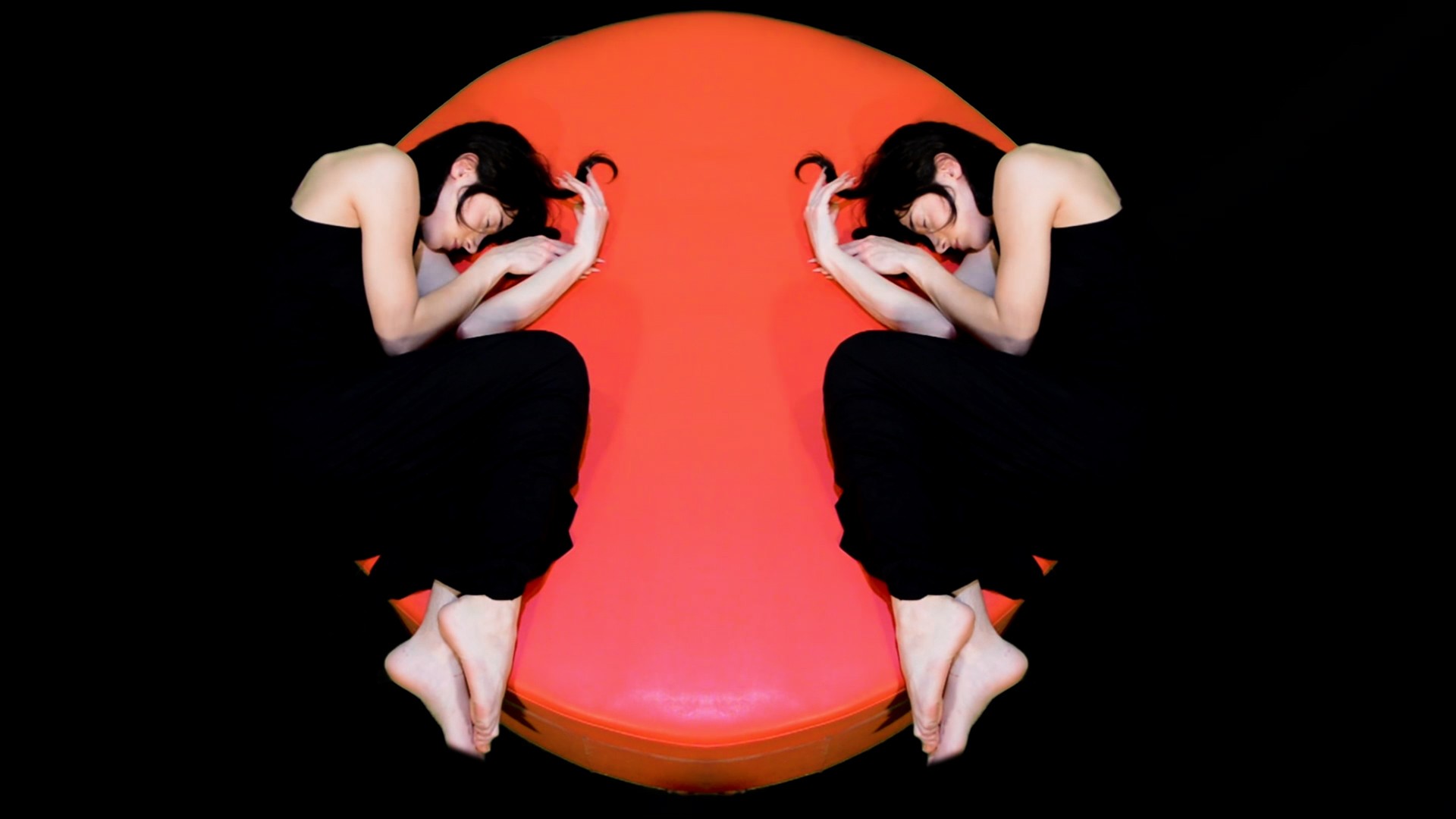
Your heritage is a mix of Palestinian, Irish, and Swedish roots. How do these different cultural influences manifest in your artistic and fashion pursuits?
My mother is Palestinian, and my father was born in the United States (my grandfather was first generation from Sweden, while my grandmother is second generation Irish, from Northern Ireland.) Our extended family is mixed, it’s a melting pot. Being around my family, there was always something to learn. The world is diverse, and makes a fun family. That’s the kind of attitude of my art and my life. And art is just an expression, like receiving good news.
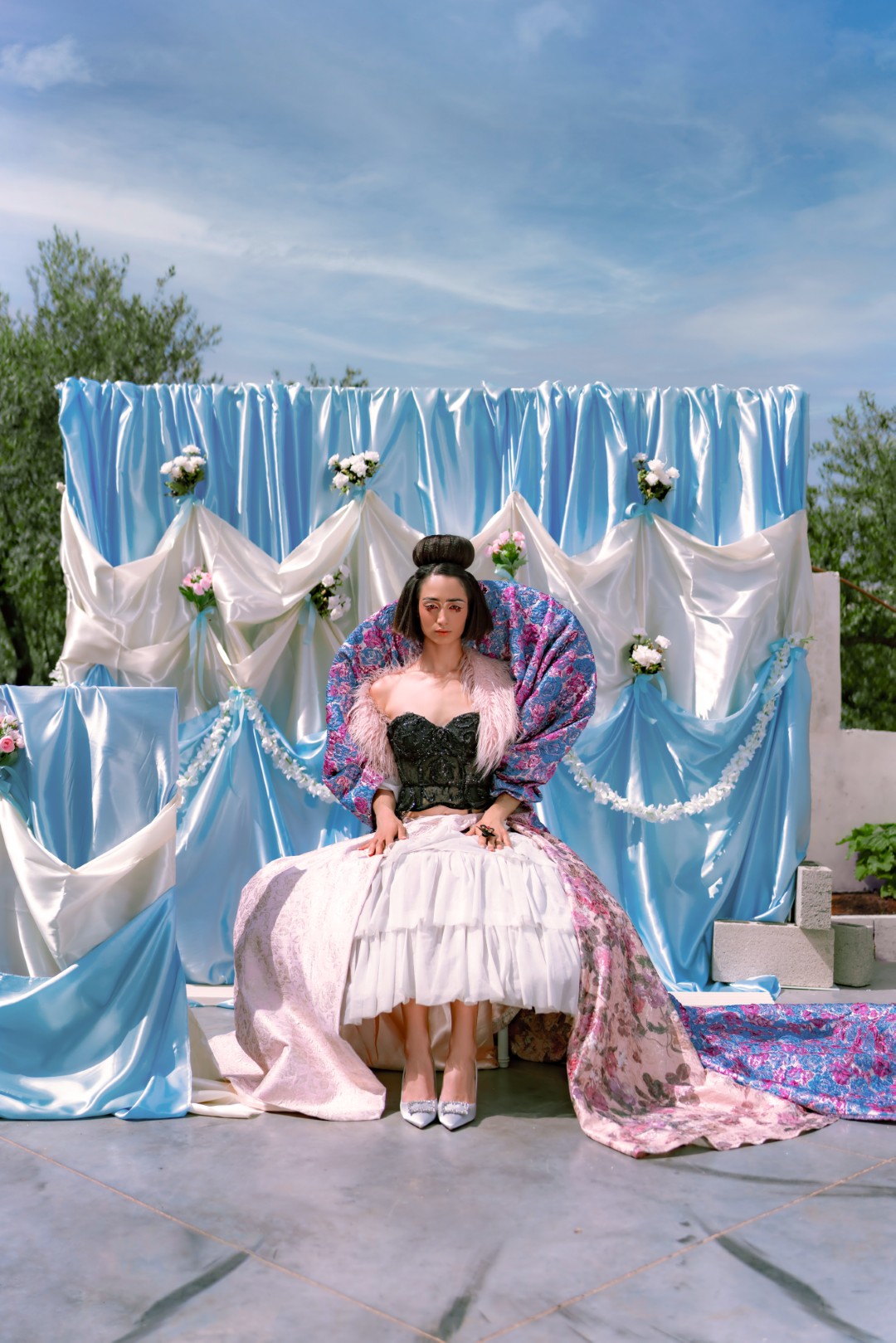
How has growing up in Haifa shaped your work?
There was always a felt instability, at times I wished my mother, God bless her soul, had agreed to go to America. Growing up, I deeply appreciate her decision to stay. Whether they do or don’t, can or can’t: everyone talks about Hijra, a hot topic of discussion. I remember thinking as a kid – What’s there to do with my life? We don’t have self-determination.
I didn’t know anything about art, or performance but I had this deep curiosity for meaningfulness. I let the city, its architectural landscape, its dynamics, its segregation, and the way it’s used as a gaslighting landmark for coexistence, all speak to me…
Haifa is one of the most beautiful places in the world. Waking up to look at the view, will I see Jabal El Sheikh today? Will I get to see bits of Lebanon today? The sound of the birds, the sea, its smell. I have not swum in the water for more than a year now. All I can think about is Gaza. The sounds of the jets.
And in the background, always having that conversation, whether to stay, or leave my beloved Haifa for a bit? Who shall take my place? What is my role? A responsibility that Palestinians put on themselves. I never felt, for a long time, that I should leave. There in the background too, I thought: How do I want to make who I am?
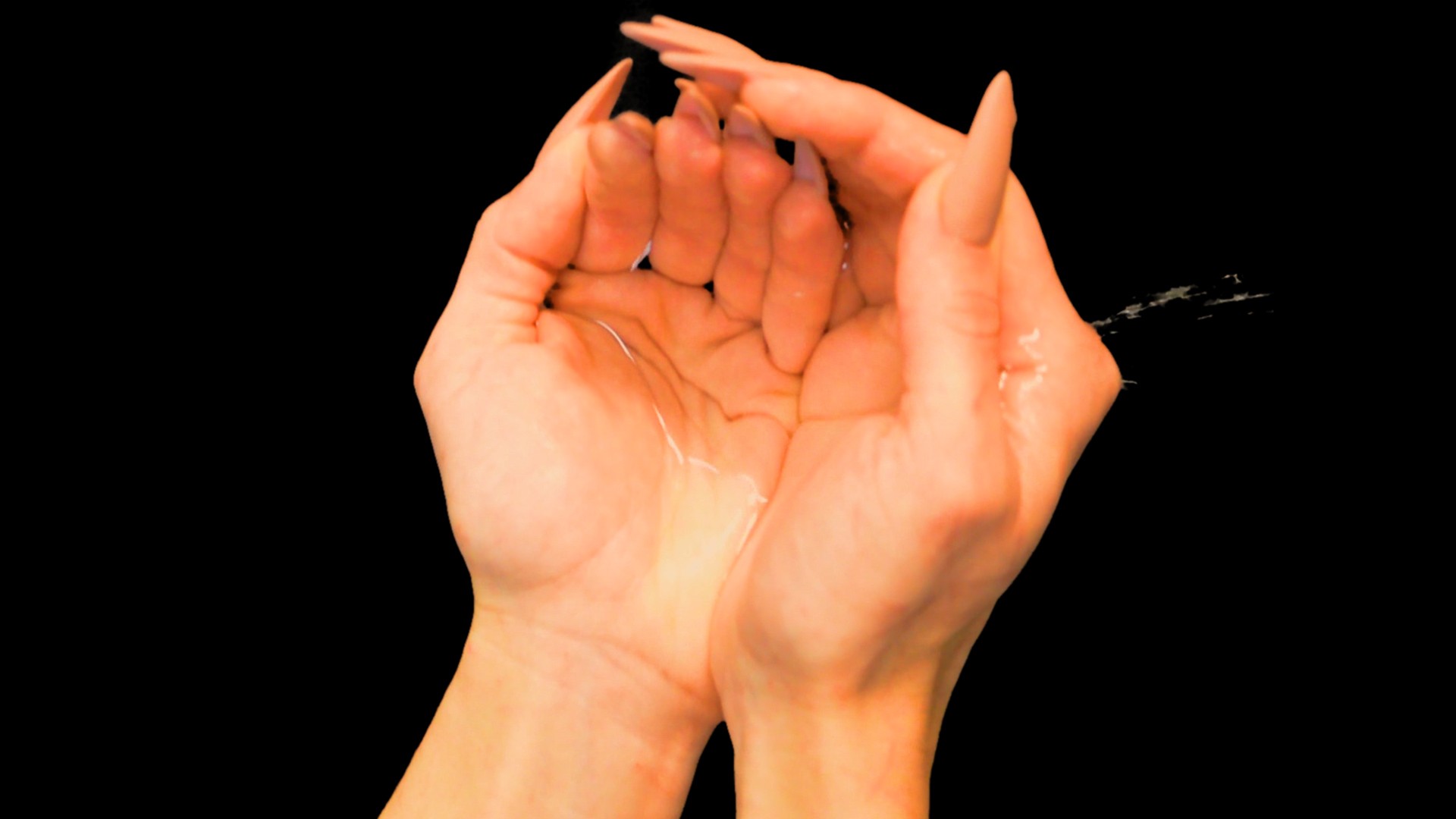
Your work spans performance theory, storytelling, fashion, and dance. How do these disciplines intersect in your creative process?
Fashion evolved as a performance, a communication, like a sculpture, so electrified with meaning and expression, the past, and the future. It’s a type of nonverbal communication that goes beyond language. I cultivate the essence that carries this dying flesh. “I fashion the future”, it’s my philosophy. Playing on the magical and the absurd by merging these disciplines/interests that really have always informed one another.
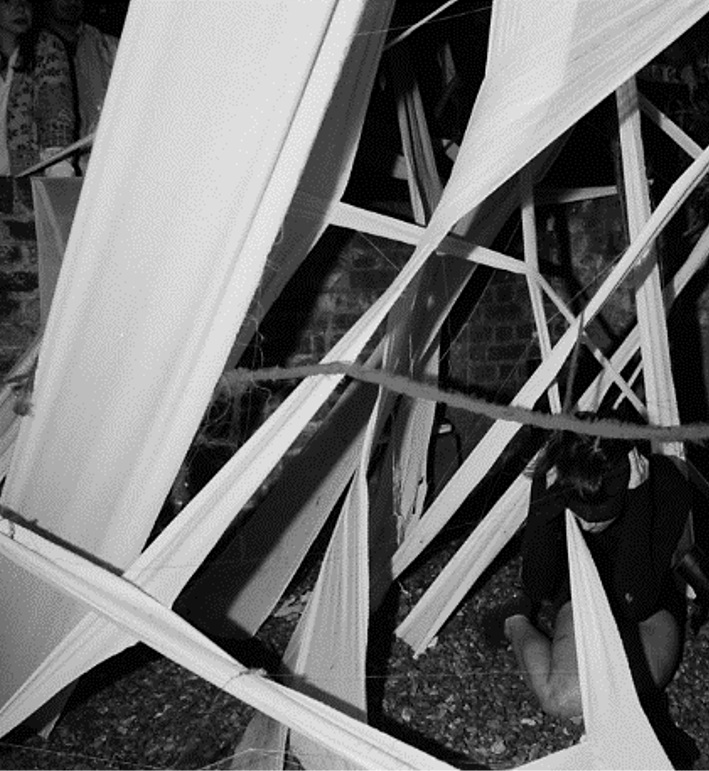
In pieces like Spade and Classical Myths, you use performance to challenge systems of power. What draws you to performance as a medium for resistance?
I wanted ‘SPADE’ to challenge the constraints on expression in our society. Occupation leaks into our self-perception and how we treat each other. Don’t laugh too much, don’t be loud, stay in your lane, don’t grab attention. To break rules one must break these patterns within themselves. My sister built a cement shirt-like structure on me that weighed me down as soon as she dressed me. I broke it off and ripped it apart. I emerged out of the constraints, and opened up to the audience. It was a challenge for me to do that, I faced the police in my head. In time and space, I took on the embodiment of reclaiming MY expressions, buried under the architecture of trained bodies. I captured drilling and excavating oneself. What’s to be underneath? What is the foundation? What is the beginning? Reclaimed sovereignty/agency, break everything that isn’t real.
‘Classical Myths’ was a live performance, This time in London. Who am I talking to? The performance wanted to shed light on the hypocrisy of human affairs.
I created a ‘tent’-like installation with blind spots. I attempt to perform the broken communication between the marginalized and those free to roam the exhibition space. Although ruling society covers the marginalized with subhuman stereotypes, they are still moving and communicating. Do you care to listen? To look into my eyes?
This installation also didn’t want to belong, didn’t want to merge into the aesthetics of the white cube.
I wanted to highlight that solidarity is first acknowledging the absurd dynamic between the charitable, passive viewer, and [those] forced into a web of marginalization, stuck.
This installation could represent the urban slums of Rio, Palestine, like Al Naqab… the streets of Paris or New York filled with poverty drenched in the fifth of the upper classes…
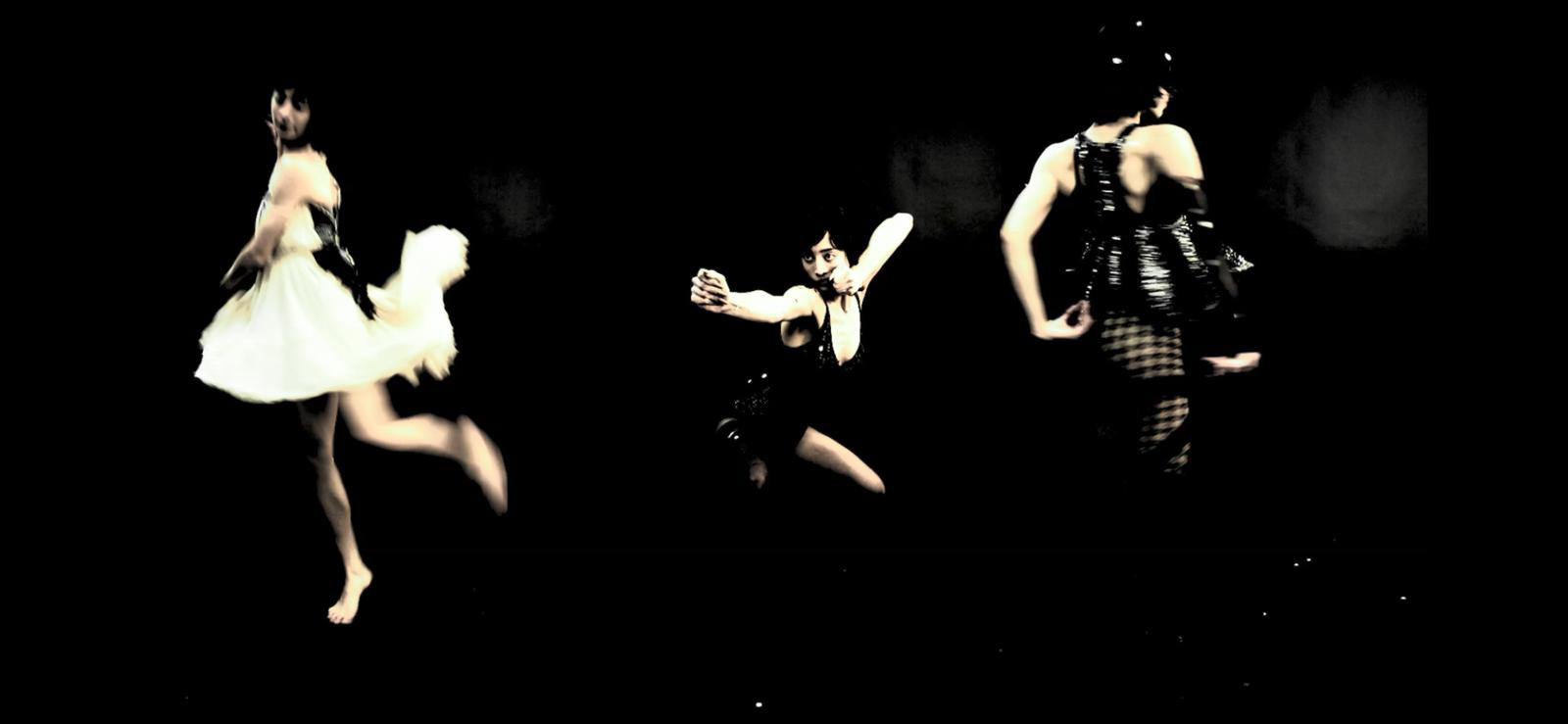
You never intended to enter the fashion world—what changed, and how do you navigate fashion as an extension of your artistic expression?
Everything started from fashion. Fashion was my gateway into art, into philosophy. I used to do photoshoots with my friends, make movies, shows and video clips. I started from a static image, and slowly it developed into expressive movement, dance, sound and more complex compositions of expression. My career.
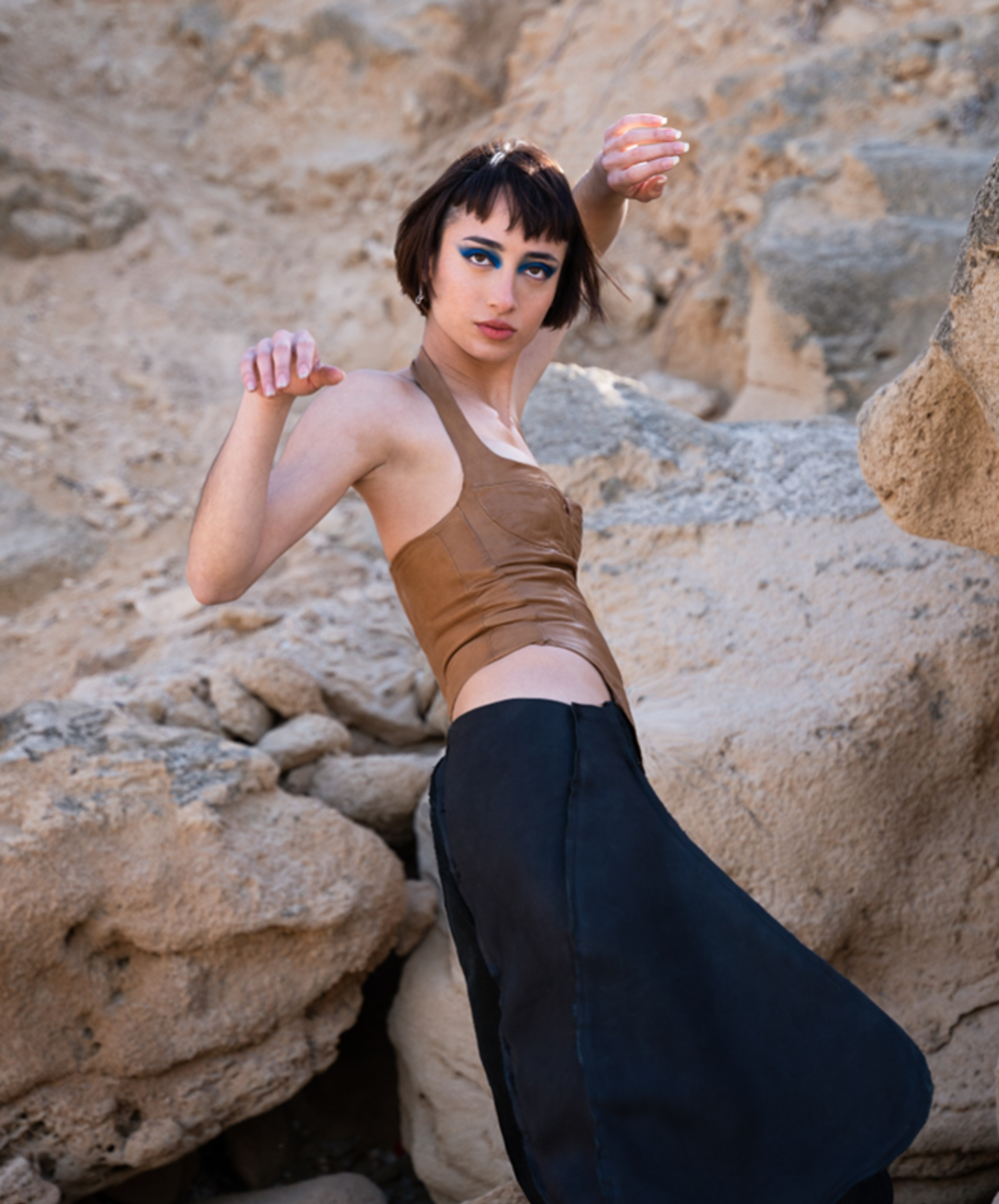
You explore fluidity and meaning in your work. What does “fluidity” mean to you in the context of identity, art, and resistance?
I don’t live in the boundaries of the flesh, or limitations of identity or culture. Our inner world keeps expanding. Ideas are so fragile but can change the world. Revolution is an idea.
Everything talks to me. Poetry is all around. The concept of fluidity helped me look beyond my circumstance. Living in ’48, I was isolated and things were gatekept. I feel so blessed to trust God and not my limited knowledge! To ease my heart, knowing I am everywhere and nowhere. I am where I need to be and God has a plan for me. I resist this world because it tells me who I am, but I know who I am, and most importantly God knows who I am. No more mental clutter!! This world is a SHAM.
For more stories of art and culture, visit our dedicated archives.
